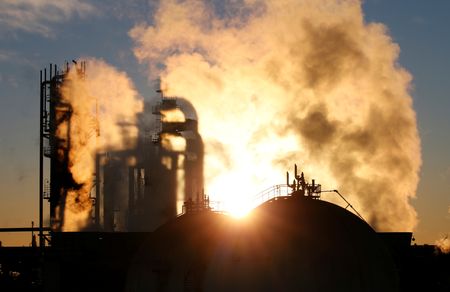 1
1 1
1
By Tetsushi Kajimoto
TOKYO (Reuters) -Business sentiment at big Japanese manufacturers turned positive for the first time this year and service-sector morale hit a five-month high, the Reuters Tankan poll showed, as the economy continued to improve from a COVID-led recession.
Wednesday’s monthly poll, which tracks the Bank of Japan’s closely watched quarterly tankan survey, found that manufacturers are also upbeat about the coming three months, while service-sector morale was seen down a tad.
The solid reading may further fuel speculation that the BOJ will embark on normalising its easing policy sooner rather than later. However, governor Kazuo Ueda has repeatedly said that inflation, supported by wage hikes, needs to track at a sustainable rate of 2% before the bank could consider any exit.
“Given Governor Ueda’s cautious stance on global economy, it still takes time for the BOJ to embark on normalising monetary policy,” said Yoshimasa Maruyama, chief market economist at SMBC Nikko Securities.
“Big manufacturers’ sentiment rose on improvements in the auto industry and it’s likely to stay in positive territory, although the pace of recovery will be moderate.”
The sentiment index for big manufacturers reached +6, up from April, the survey of 493 firms, of which 241 responded during May 10-19, showed.
It was the first positive reading this year and is seen rising further in August.
Auto firms and oil refineries were among manufacturers reporting positive responses, as supply chain bottlenecks eased.
“As daily life normalises after the pandemic, customers’ appetite for purchasing has turned higher, helping department store sales in urban areas post double-digit growth,” a retailer manager wrote.
Many others, however, complained about the costs of doing business, reflecting still high global inflation on goods and services.
“Weak yen and elevated crude pushed up costs of everything from raw materials to services, which hurt consumption,” a food processing firm’s manager wrote.
The service-sector index rose slightly from April to 25, its highest reading this year, led by retailers and real estate and construction firms.
The world’s No. 3 economy emerged from recession in January-March as a post-COVID consumption rebound offset global headwinds, offering hopes for domestic demand-led growth.
Last month, the BOJ’s tankan showed manufacturers’ sentiment soured in January-March to its worst in more than two years.
The sentiment survey indexes are calculated by subtracting the percentage of pessimistic respondents from optimistic ones. A positive figure means optimists outnumber pessimists.
(Reporting by Tetsushi KajimotoEditing by Shri Navaratnam and Sam Holmes)